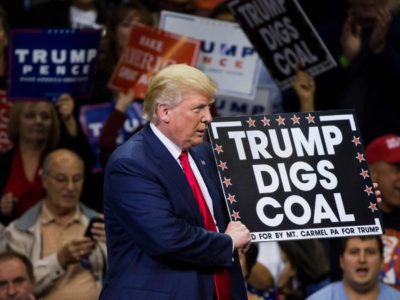The filibuster and climate change legislation
Should we eliminate the Senate filibuster to advance climate change legislation
As the Democratic Presidential primary season has unfolded, a number of the candidates have argued for eliminating the filibuster in the Senate completely. (It is currently gone for confirmation of nominations of judges and executive branch officials, but remains for substantive legislation.) So has former Democratic Senate Majority Leader Harry Reid.
One of the key areas of legislation that advocates for abolishing the filibuster point to is climate change. And it is true that absent filibuster reform, a relatively small minority of the US population, overrepresented in the Senate and concentrated in rural states with significant fossil fuel industries, can block a wide range of legislative action on climate with the filibuster in the Senate – or at least delay it too much, given the urgent need for action on climate.
I have some doubts about this approach in the context of climate policy – albeit not so great that I would necessarily oppose eliminating the filibuster to enact climate legislation. (Though I would note that given the current election cycle in 2020, I’m skeptical that Democrats would even have 50 votes in the Senate to kill the filibuster, given the likelihood that moderate or conservative Democrats such as Joe Manchin from West Virginia would hold the balance of power, even if the Democrats did get a majority.)
The problem is that if you kill the filibuster for good climate legislation, you also kill it for bad climate legislation. And the result could be that in the not-too-distant future, unified control of Congress and the White House by opponents of climate legislation could use the lack of the filibuster to repeal any climate legislation you have enacted.
Of course, filibuster-repeal proponents would reasonably note that in the interim – between when the filibuster is repealed and climate legislation is enacted, and the later date when the climate legislation is repealed – some good steps towards decarbonization will have been taken. But the problem is that a lot of decarbonization – think renewable energy, electricity transmission lines, electrification of transportation and more – requires significant investment. And investment is, on the margins, deterred by significant policy uncertainty – uncertainty that would increase with the higher volatility in climate policy that you would get with filibuster repeal.
But if you don’t repeal the filibuster, perhaps you wouldn’t get any effective climate policy through the Senate, such that you would get no investments at all? Even limited investments, albeit reduced by policy volatility, would be better than no investments at all. But it isn’t true that with the filibuster you can’t get at least some good climate policy. A Democratic President might use the Clean Air Act to produce more investment (as President Obama sough to do) – though those regulations could also be undone by a future Administration (just as Trump is seeking to do now), so they aren’t as useful from an investment perspective. More importantly, there are a range of legislative efforts that might work even with the filibuster. For instance, there is bipartisan support for tax credits and funding for research on technologies that could remove carbon from industrial emissions or the atmosphere. And a lot of things can be done through reconciliation – legislation that can evade the filibuster if it has a budgetary impact – including a carbon tax, subsidies for decarbonization efforts, and more. (Indeed, many of the Green New Deal proposals focus precisely on direct federal government spending and subsidies that can be done through reconciliation.) Of course, again reconciliation can be undone by a simple majority down the road, but bipartisan legislation would not.
There’s another issue with eliminating the filibuster for climate policy, which are the impacts on other environmental legislation – what we might call “legacy” environmental legislation going back to the 1970s that provides the framework for almost all environmental law in the United States – the Endangered Species Act, the Clean Air Act, the Clean Water Act, hazardous waste statutes, and more. At various points, the GOP has proposed repealing some or all of these statutes, but have been blocked by the filibuster (among other obstacles). Without the filibuster, the odds substantially increase of repeal of this legislation. Of course, one could try to reenact that legislation when new pro-environment majorities return to Congress – but there are two issues here. First, I am skeptical that we might get anything as strong as these legacy statutes today, even with pro-environment legislators. Second, in the meantime, irreversible harms (such as species extinctions) might occur while the legacy statutes are repealed. Maybe these potential losses of our legacy environmental laws are worth it to enact climate policy, but it is a tradeoff that exists.
Overall, then, I’m not (yet) sold on abolishing the filibuster as a necessary step towards effective climate policy. Much of what we want to do could be done without abolishing it, and if we did abolish it, I worry that we would lose opportunities to entrench climate policy through bipartisan efforts that could advance important investments down the road, and that we might endanger much of the broader framework of environmental law in the US in the process.






Reader Comments